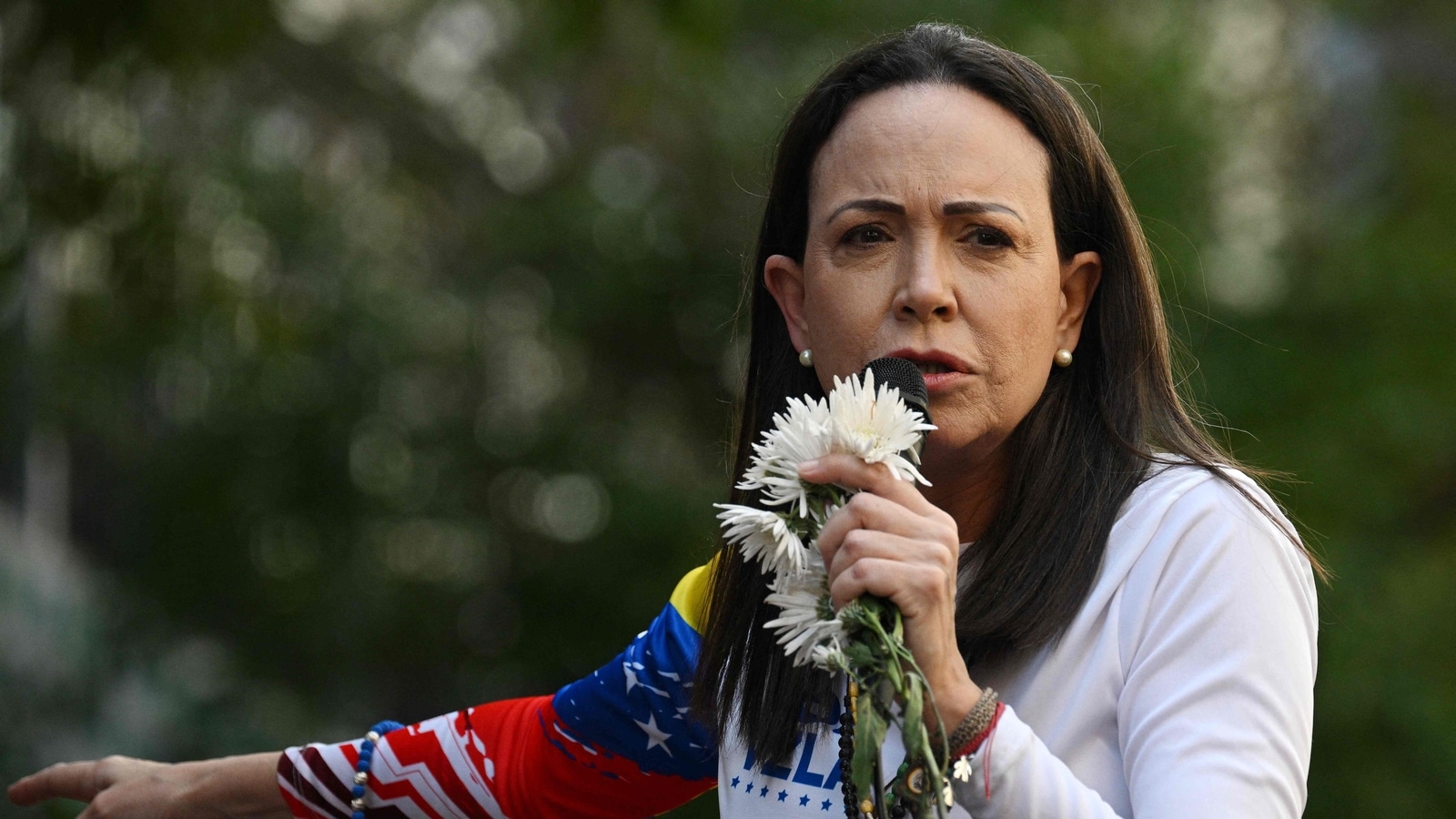IT OVERLOOKED DONALD TRUMP’S persistent demands that he be awarded the Nobel peace prize. But perhaps, in favouring one of the American president’s foreign-policy priorities, the Norwegian committee that makes the award has shown political subtlety. It pointedly honoured “a woman who keeps the flame of democracy burning amid a growing darkness”. It chose María Corina Machado, it said, because of “her tireless work promoting democratic rights for the people of Venezuela and for her struggle to achieve a just and peaceful transition from dictatorship to democracy”.
Forced to live in hiding for the past 14 months, for many Ms Machado is a Latin American Joan of Arc. Her candidacy for Venezuela’s presidential election last year unified a normally fragmented opposition and inspired hope of change. Her feat, in October 2023, of winning 2.3m votes, or 92% of the total, in an open primary for the opposition shook the dictatorial regime of Nicolás Maduro, the country’s president since 2013. The regime barred her candidacy on spurious grounds. Despite constant harassment, including a ban on taking internal flights, she campaigned on behalf of a stand-in, Edmundo González.
The regime declared that Mr Maduro had won the election. But the opposition collected 82% of the tally sheets from polling stations, and those showed that Mr González had won with 67% of the vote to 30% for Mr Maduro. The regime has never published the full election results. The opposition’s signal achievement was to provide hard evidence that Mr Maduro lacks legitimacy and the consent of his people. For many, Ms Machado is Venezuela’s rightful president.
Facing a threat of imprisonment, Mr González went into exile in Spain. But Ms Machado, most of whose family now lives abroad, has refused to leave the country. A liberal conservative who admires Margaret Thatcher, she is sometimes dubbed Venezuela’s Iron Lady. She has shown skill in navigating the choppy currents of opposition politics, moving towards the centre for her presidential campaign. The Nobel recognises her courage in speaking out for over 20 years against Venezuela’s descent into dictatorship, first under Hugo Chávez and then, since his death, under Mr Maduro. It will be widely welcomed by those committed to democracy and human rights in Latin America, where autocracies have lately advanced. The Nobel committee will no doubt hope that it adds to the pressure on the regime.
It faces a tricky moment. After holding initial talks that secured the release of Americans imprisoned in Venezuela, Mr Trump’s administration has decided to try to strong-arm Mr Maduro. It doubled a reward for his capture to $50m. During Mr Trump’s first administration the United States indicted Mr Maduro for cocaine-trafficking. Now it has sent a flotilla of eight ships, backed up by a submarine and spy planes, to the edge of Venezuelan territorial waters. While the aim is ostensibly to interdict drugs—the force has blown up four small boats in the Caribbean, killing over 20 people, which many lawyers say is illegal—the strategic objective may be to drive Mr Maduro from power. Marco Rubio, the secretary of state, has referred to the Venezuelan president as the head of a “terrorist organisation”.
Venezuelan officials deny that they have any involvement in drug-trafficking. Most drugs entering the United States do so via Mexico or the Pacific. The American force appears too big for a policing operation, but too small to oust Mr Maduro. Hopes of the regime imploding may be optimistic. Its grip on power is underwritten by Cuban military intelligence.
To the forces arrayed against Mr Maduro, the Nobel committee has added a powerful moral one. Ms Machado represents the hope of peaceful political change in Venezuela. Diplomatically, in a post on social media she dedicated her victory to Mr Trump “for his support of our cause”, as well as to “the long-suffering people of Venezuela”. Her prize also carries a wider message in a world where democracy is in retreat, as the Nobel committee noted. She “has shown that the tools of democracy are also the tools of peace” and that hope exists of a better future where “people will finally be free to live in peace”, the committee stated. That is a declaration of idealism in an increasingly brutal and transactional era.


